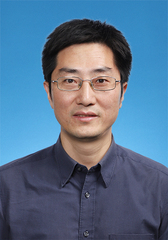
Tel: +86 (0755) 2603-6416
Email: lip@sz.tsinghua.edu.cn
Address: Building D Room 403C
2000.09-2006.09: Ph.D., Department of Philosophy, Nanjing University
2012.01-present: Associate Professor, Graduate School at Shenzhen, Tsinghua University
2014.01-2014.12: SPRU(Science Policy Research Unit), University of Sussex, UK, Visiting Research Scholar, Innovation for Sustainability (China Scholarship Council / University of Sussex Joint Scholarship)
2009.01-2011.12: Assistant Professor, Graduate School at Shenzhen, Tsinghua University
2007.01-2008.12: Postdoctoral fellow, Technology and Industry Studies, Graduate School at Shenzhen, Tsinghua University
Dialectics of Nature; Engineering Ethics and Responsible Innovation; Science, Technology and Society
Science, technology and society; Innovation for sustainability and technology risk; Transformative innovation (regional innovation systems)
Interests:
Science, technology and society; Innovation for sustainability; Responsible innovation
Past and Present Projects:
Transitions of Technological Regime for Sustainability in China. Sponsored by National Social Science Fund, 2011-2016. PI.
On the Industrial Transformation in Financial Crisis and Green Capitalism. Sub Project of Special Appointed Project of National Social Science Fund, 2013-2017. PI.
Low Carbon Innovation in China - Prospects, Politics and Practice. Sponsored by ESRC, 2013-2017. Key Researcher.
Social Choice Mechanism in the Transition towards a Circular Economy, Sponsored by Postdoctoral Science Foundation of China, 2008-2010. PI.
Some Thoughts on Promoting Independent Innovation Strategy from Shenzhen’s Practice, Sub Project of Key Projects of National Twelfth Five Years Plan, Sponsored by Ministry of Science and Technology, 2009-2010. Key Researcher.
Construction of Innovative Country, Sponsored by National Development and Reform Commission, 2009-2010. Key Researcher.
Innovation for Sustainability and Technology Risk
Ping Li. On Low Transition from the Perspective of Socio-technical Regime. Studies in Science of Science, 2018(6): 1102-1109.
Ping Li, Miao Liao. Understanding the “Reflexivity” of Responsible Innovation: a Heuristic Framework. 2018 Annual conference of the Chinese Sociological Association, 2018(7).
Ping Li, Xiaoshuo Hou. The Institutional Legitimacy of Low-Carbon Niche-Cultivation: The Case of New Energy Vehicles in Shenzhen. 2017 Annual conference of the Chinese Sociological Association, 2017(7).
David Tyfield, Dennis Zuev, Ping Li, John Urry. The Politics and Practices of Low-Carbon Urban Mobility in China: 4 Future Scenarios. Centre for Mobilities Research Working paper, Lancaster University, 2016(6).
Ping Li, Dennis Zuev, David Tyfield. Development of NEV in China: a case of protective space. International Sustainability Transitions Conference, UK, August 2015.
David Tyfield, Dennis Zuev, Ping Li, John Urry. Low Carbon E-Mobility Transition in China: Stasis and Dynamism. International Sustainability Transitions Conference, UK, August 2015.
David Tyfield, Dennis Zuev, Ping Li, John Urry. Low Carbon Innovation in Chinese Urban Mobility: Prospects, Politics & Practices. STEPS Working paper, 2014(12).
Adrian Ely, Ping Li, Fruzsina Kemenes, Pusheng Wang. The Role of Municipal Regulations in the Transition Towards a Circular Economy: the Case of Bao’an District, Shenzhen, China. SPRU Working Paper, 2012.
Ping Li. The Debate on Precautionary Principle and its Implication. Journal of Dialectics of Nature, 2011(2): 60-65, 127. Cover Remarked Paper.
Ping Li. How to Understand the Debate on Precautionary Principle in Risk-based Decision Making. ECAP10, VIII European Conference on Computing and Philosophy, 2010.
Ping Li, Xiaolei Guo. Multiple Perspective of Technology Innovation. Engineering, Technology and Philosophy: 2009’s Research Yearbook on Philosophy of Technology in China.
Ping Li. Environment in China: Problems and Policies. Foreign Theoretical Trends, 2008(6): 73-77.
Ping Li. Green Technology Living: the Deep Significance of Green Technology Innovation. Science Technology and Dialectics, 2005(2): 64-67.
Ping Li, Ling Xiao. Technological Determinism in Technology Innovation. Forum on Science and Technology in China, 2006(2): 38-42.
Ping Li. Subject System of Green Technology Innovation. Studies in Science of Science, 2005(3): 414-418. Cover Remarked Paper.
Ping Li. Ecological Living: Rethinking technology. Paper Collection of First International Academic Conference on Environmental Ethics in China, 2004(10).
Ping Li. From the Traditional Technology Innovation to Green Technology Innovation. Social Science, 2001(12): 11-14.
Regional Innovation Systems
Ping Li. Evolution Process from PRS to RIS of Catching-up Region: a Case of Shenzhen. Science and Technology Management Research, 2017(2).
Chunzi Xie, Ping Li. Democratization of Innovation: a Case of Tel Aviv, Israel. Practice and Theory of SEZS, 2015(8).
Ping Li, Chun Yang. Transition of Ocean Science Research Institute towards Post-academic Science Research: a Case of MBARI. Journal of Dialectics of Nature, 2014(4): 19-25.
Ping Li, Guoping Zeng. Hidden Innovation in London and Its Implication. Science & Technology Progress and Policy, 2012(5).
Yu Zhang, Pusheng Wang, Ping Li. Relativity Analysis between Scientific and Technological Innovation and Economic Development in Shenzhen. Science & Technology Progress and Policy, 2010(3).
Henry Etzkowitz. Pingju Wang, Ping Li (Translator). Entrepreneurial University and the Triple Helix Model of Innovation. Studies in Science of Science, 2009(6): 481-488.
Pusheng Wang, Junyou Yang, Ping Li, Yu Zhang. Evolution of Global Mode of Production: From Fordism to Wintelism. Science Technology and Dialectics, 2008(3): 96-101.
Ping Li, Pusheng Wang. Developmental Tactics of Equipment Manufacturing Industry. Journal of Shenzhen University, 2008(5): 26-30.
Ping Li, Pusheng Wang, Junyou Yang. Construction Model of Generic Technology Platform for Traditional Industry. Dialectics of Nature, 2007(9): 55-59.
Ping Li, Pusheng Wang, Junyou Yang. Transition of High and New Technology Industry in Shenzhen Based on Wintelism. Forum on Science and Technology in China, 2007(11): 45-49.
Pusheng Wang, Junyou Yang, Ping Li. Industrial Transition of Shenzhen in a Global Perspective, Beijing: People Press, 2010.